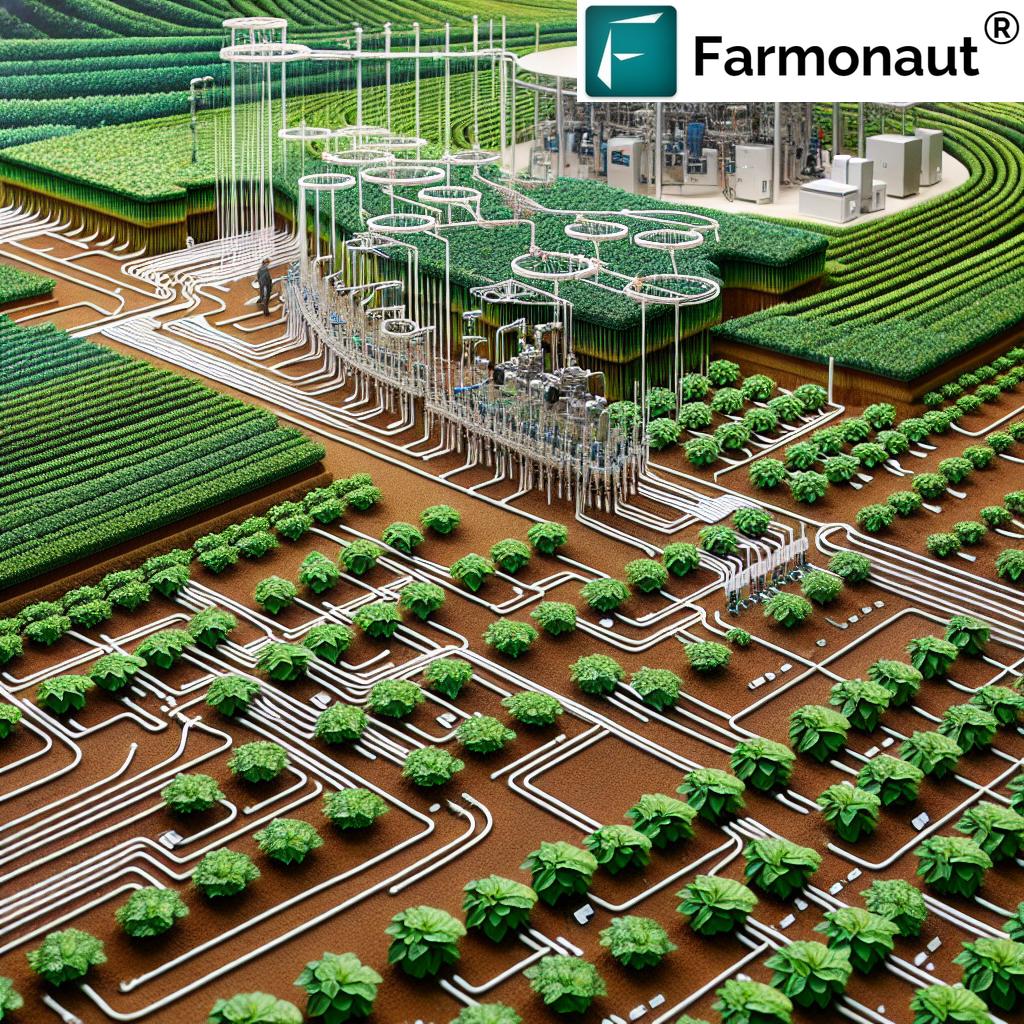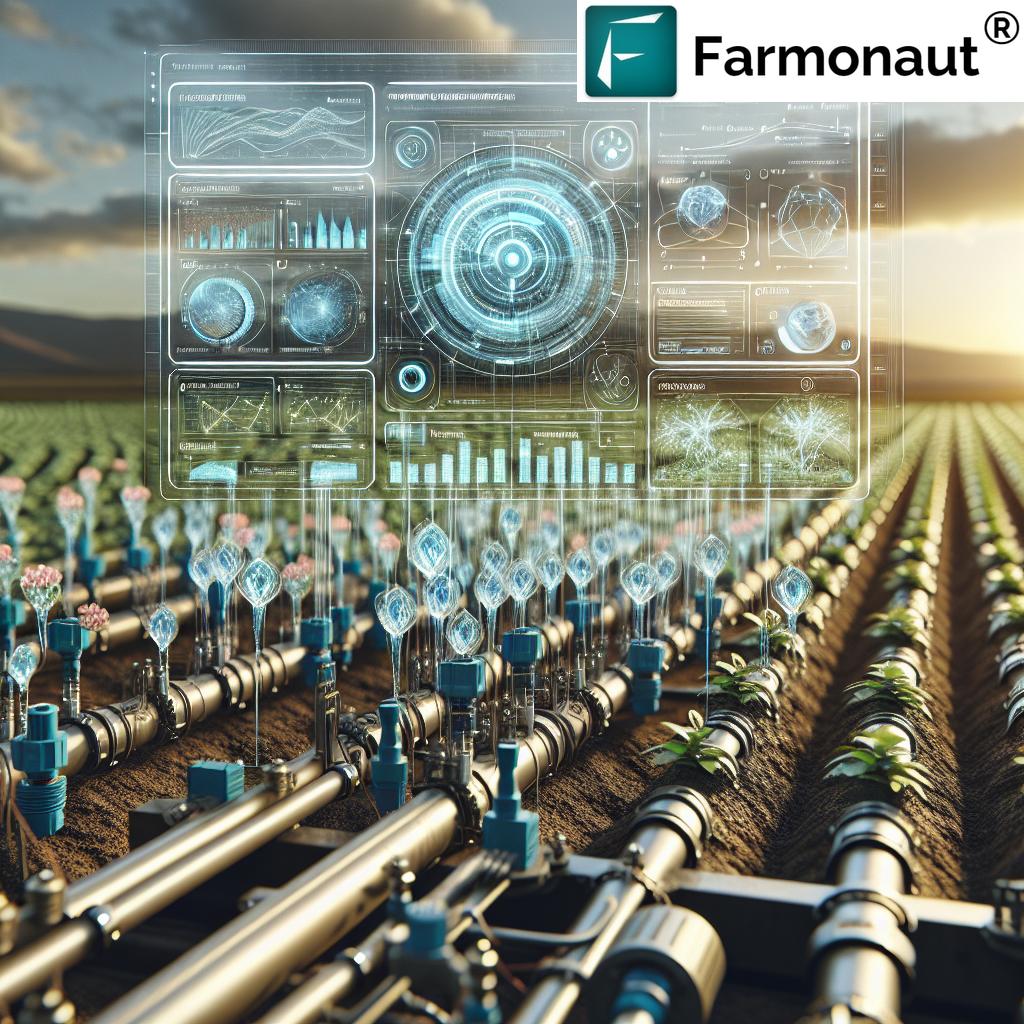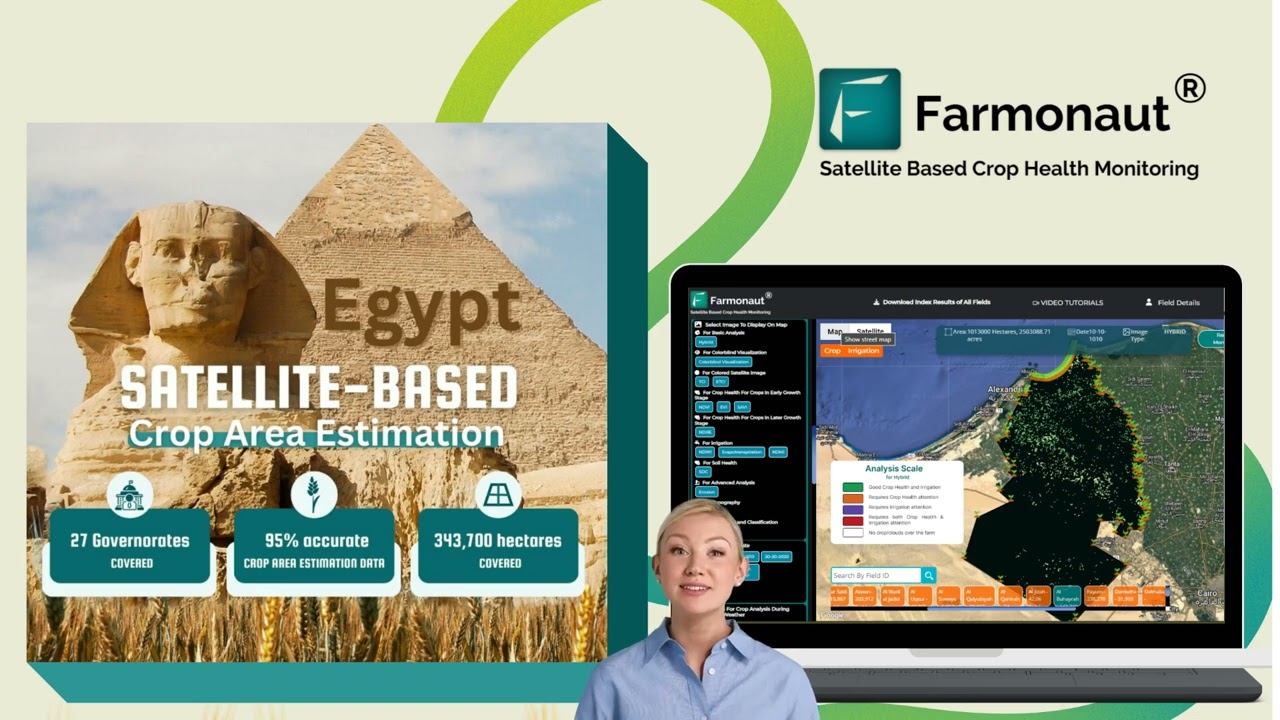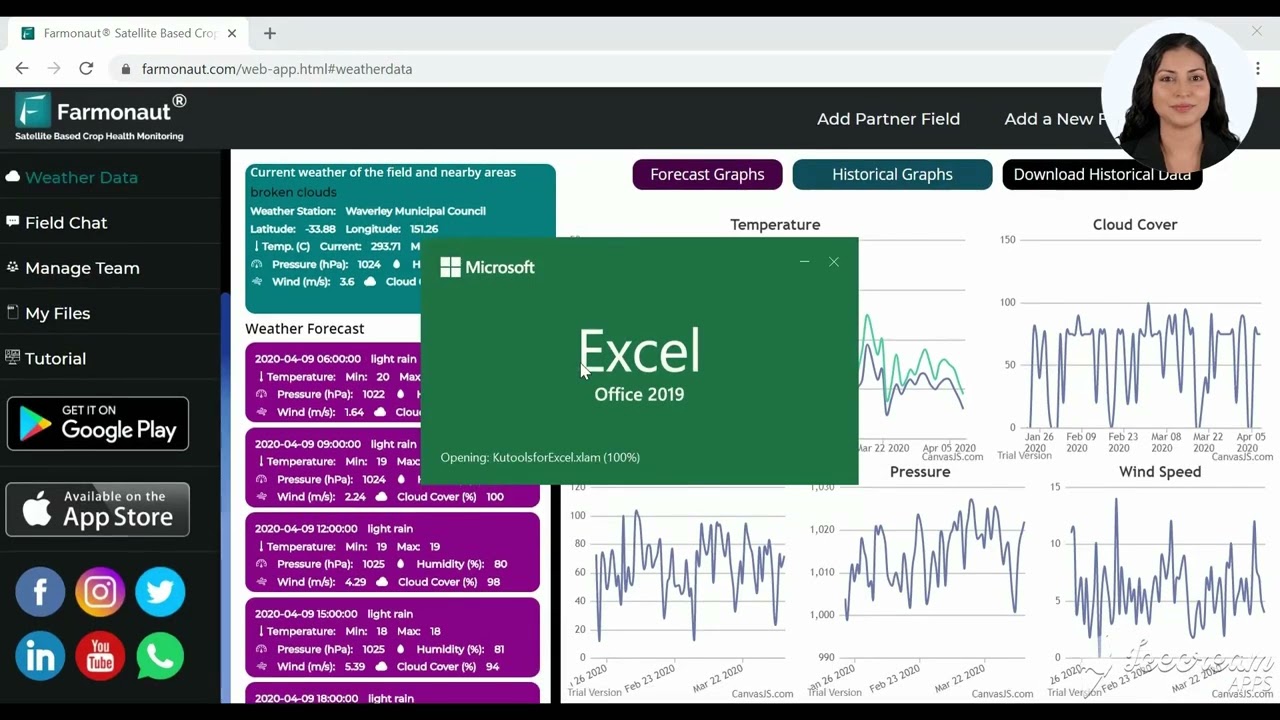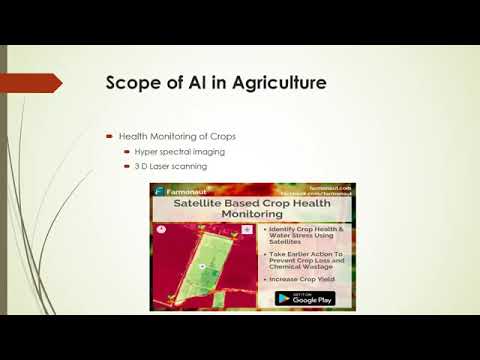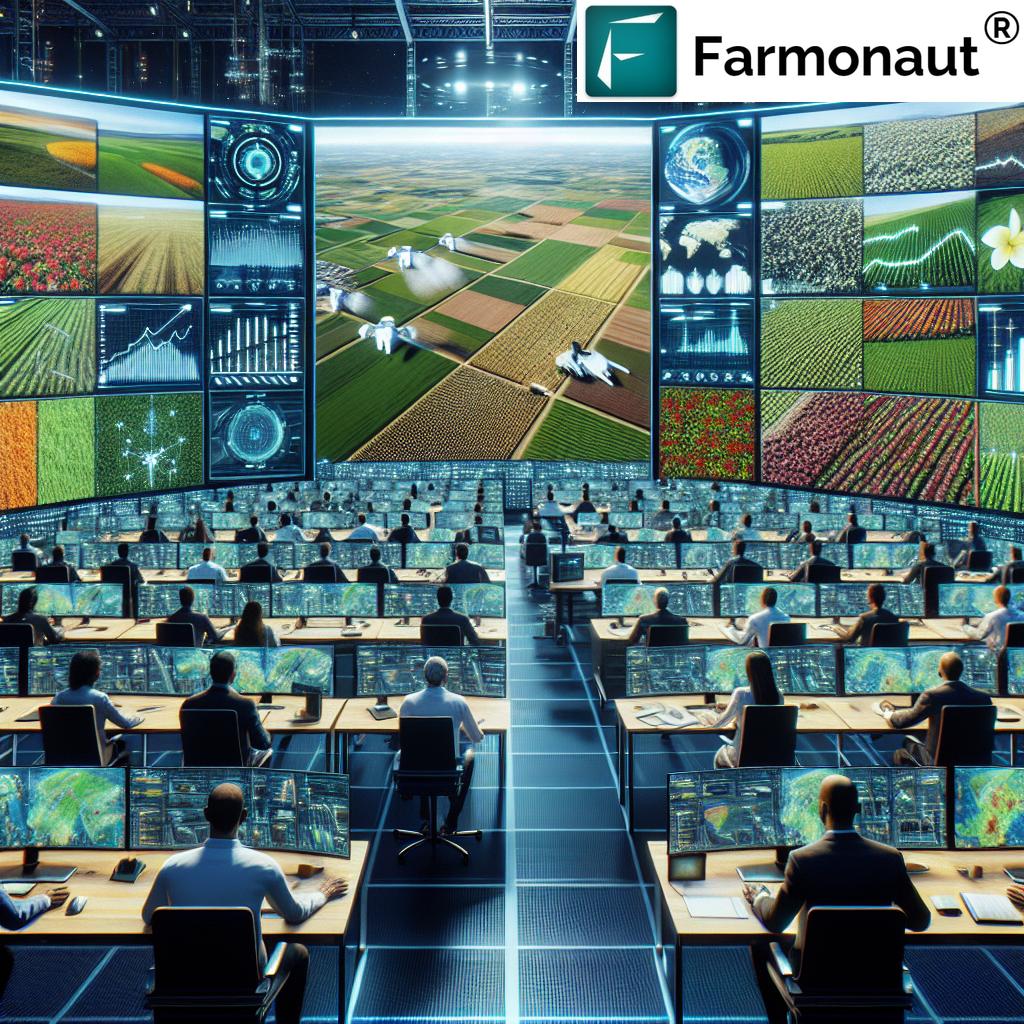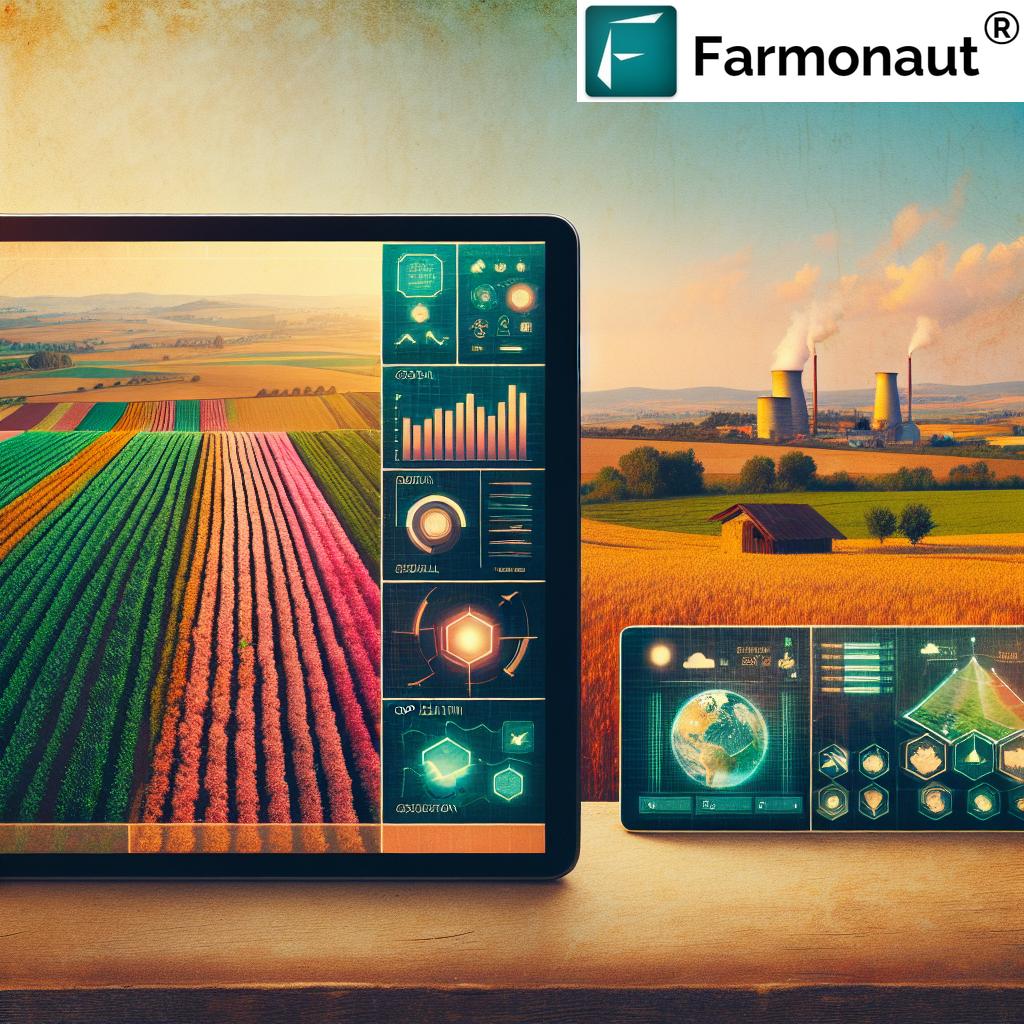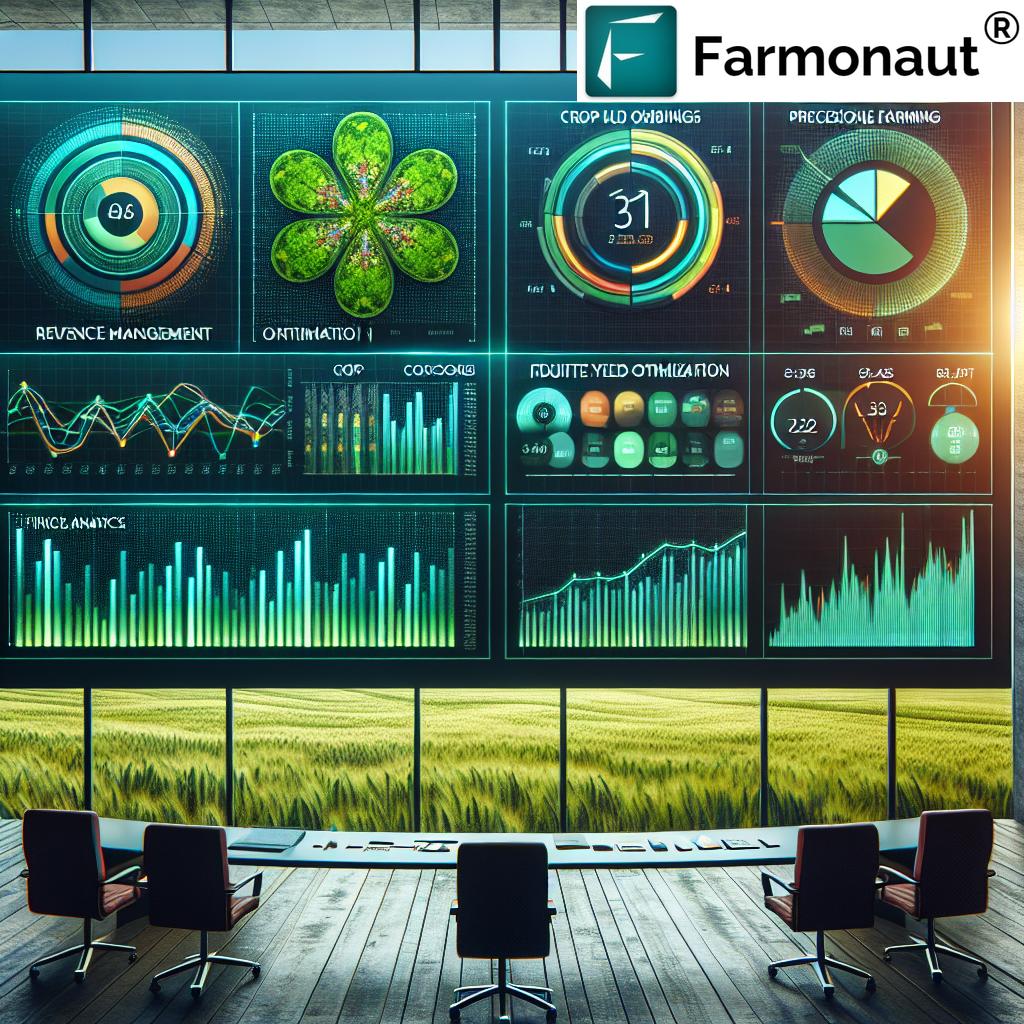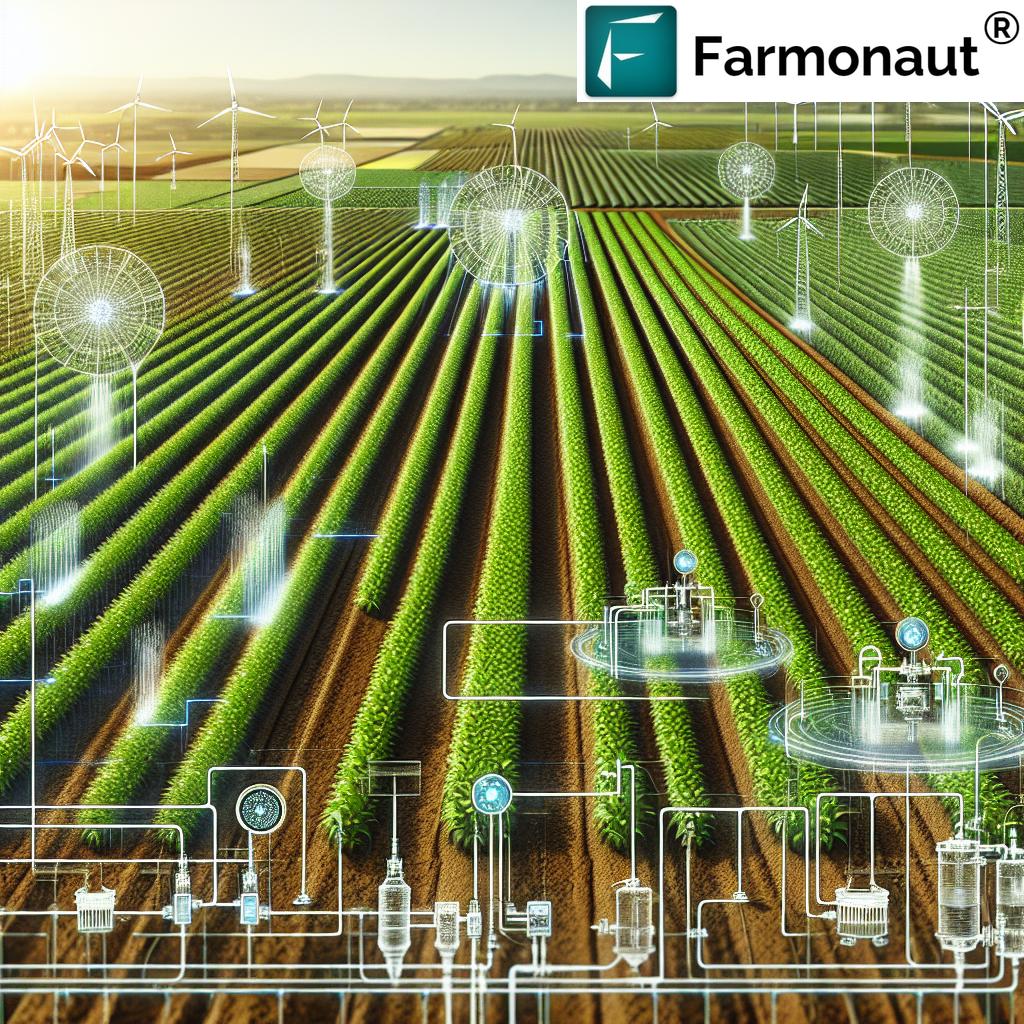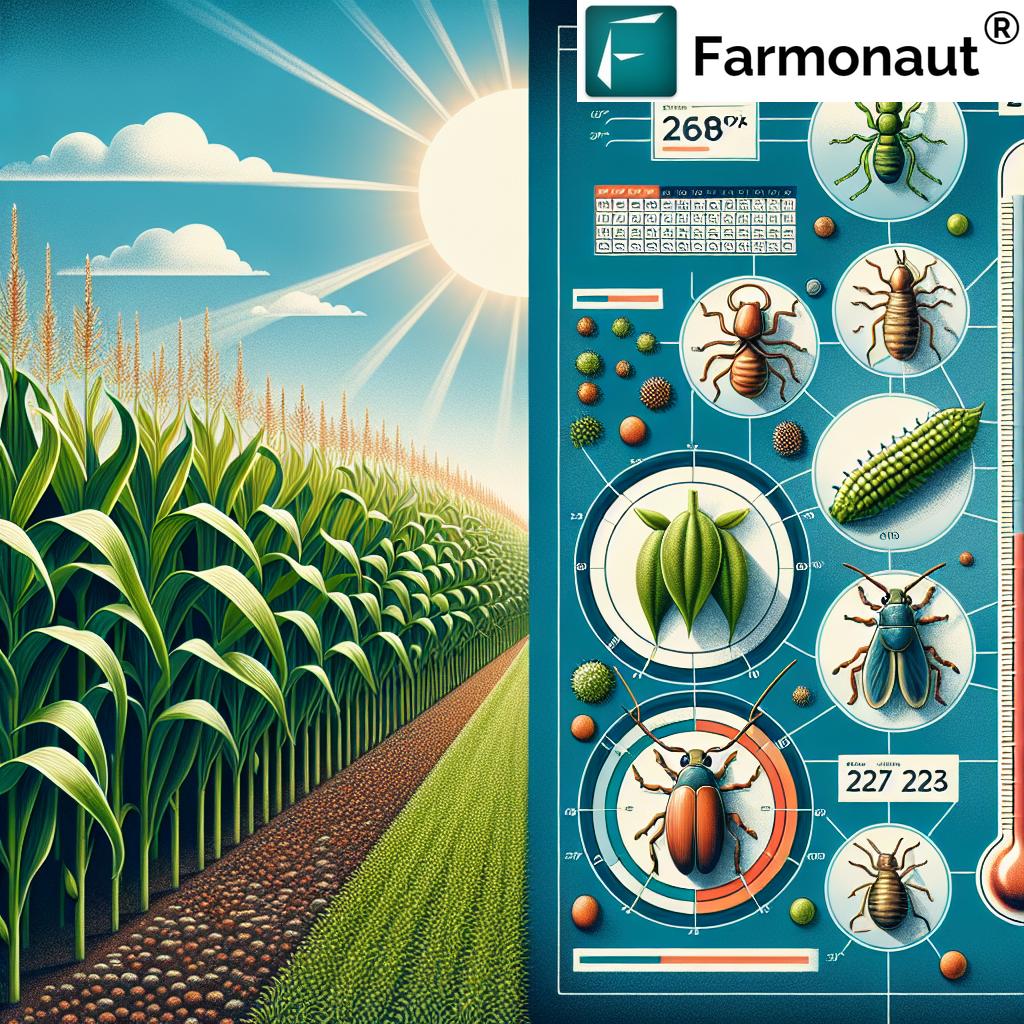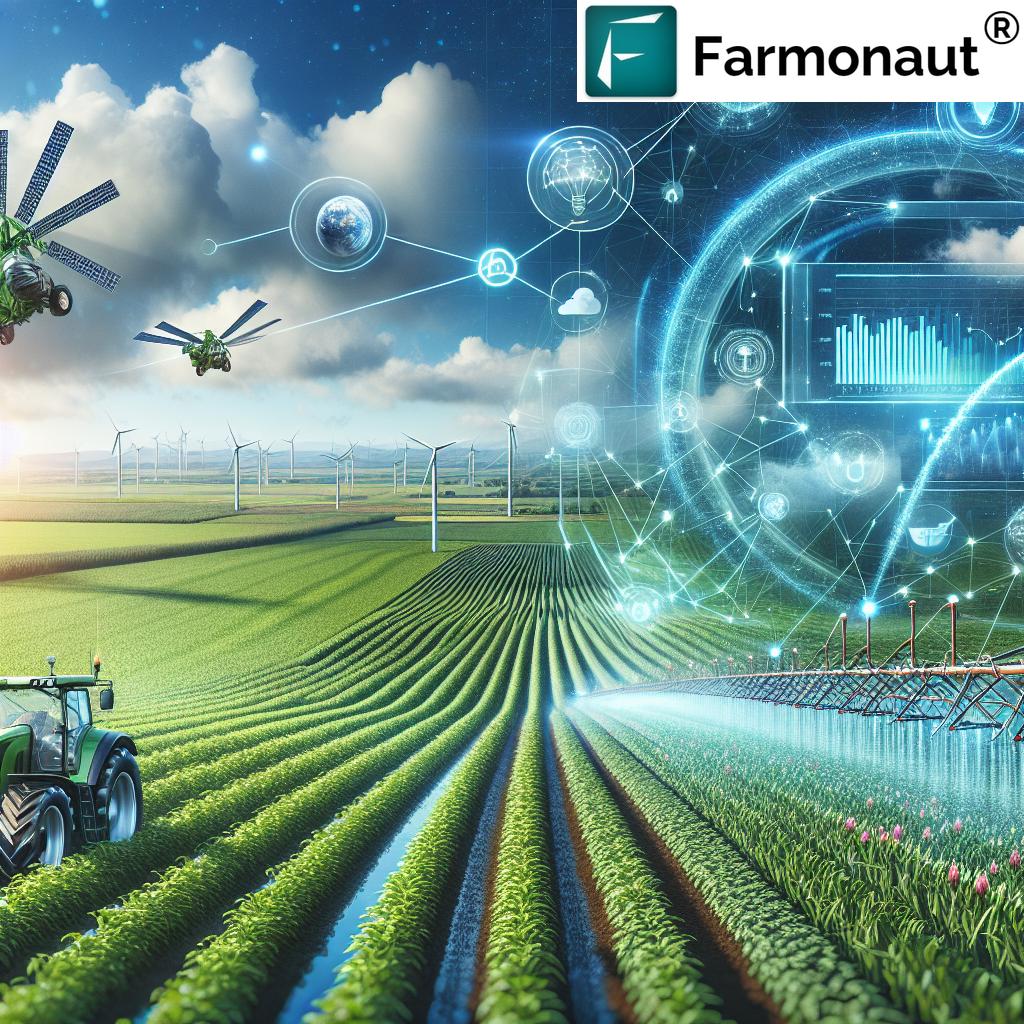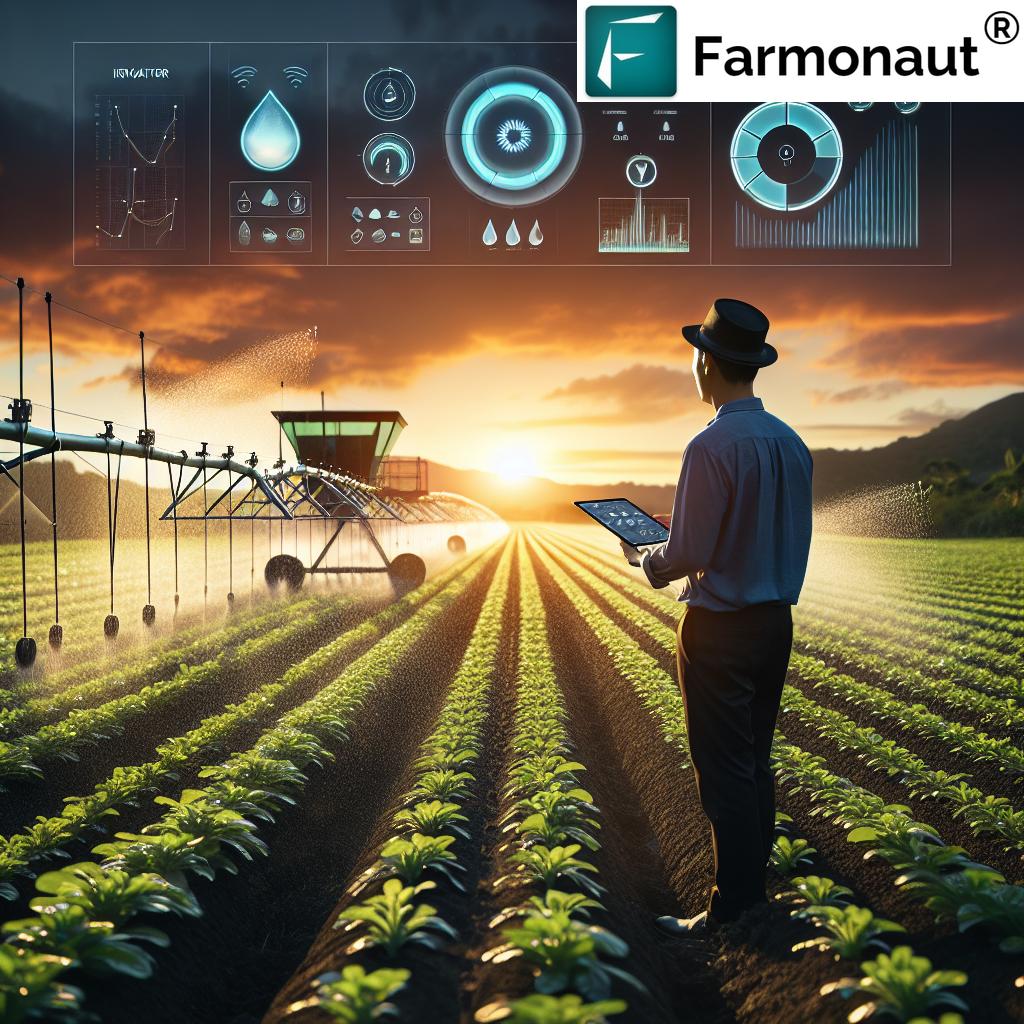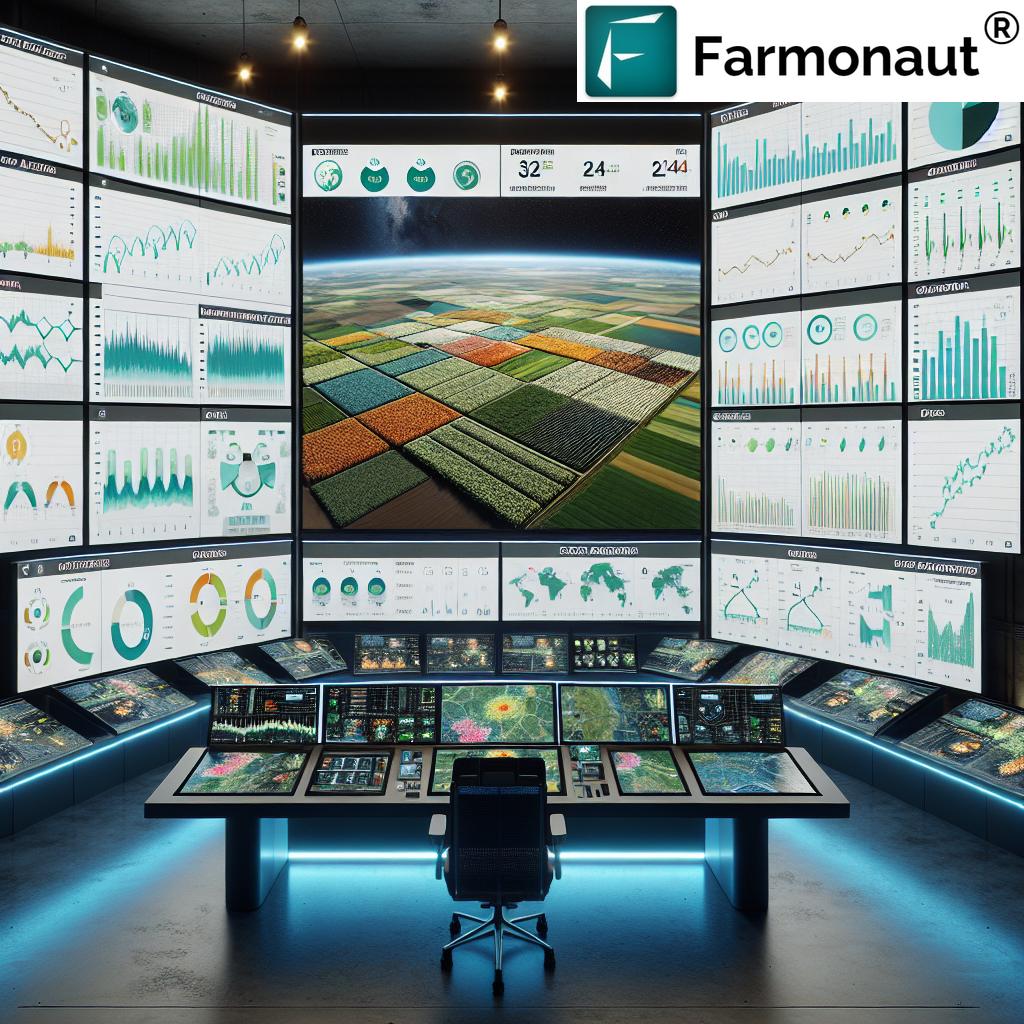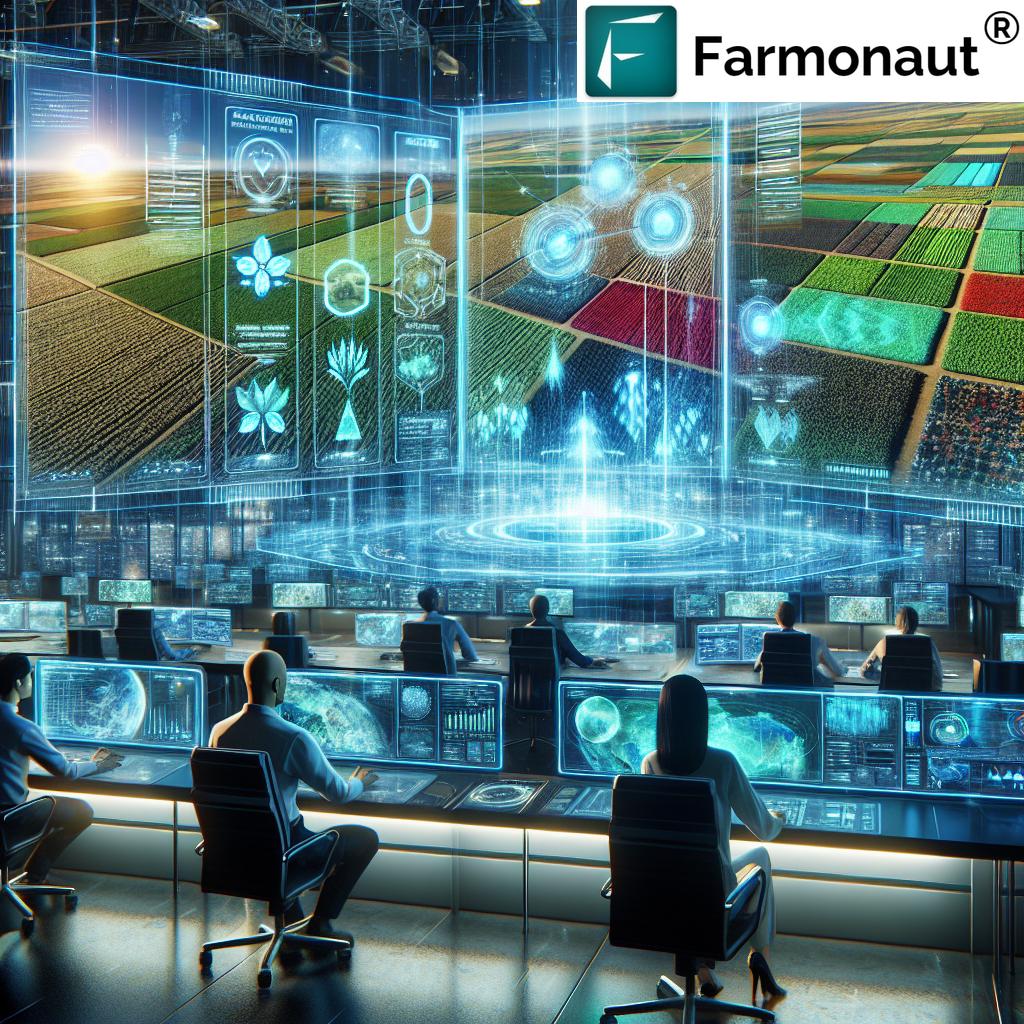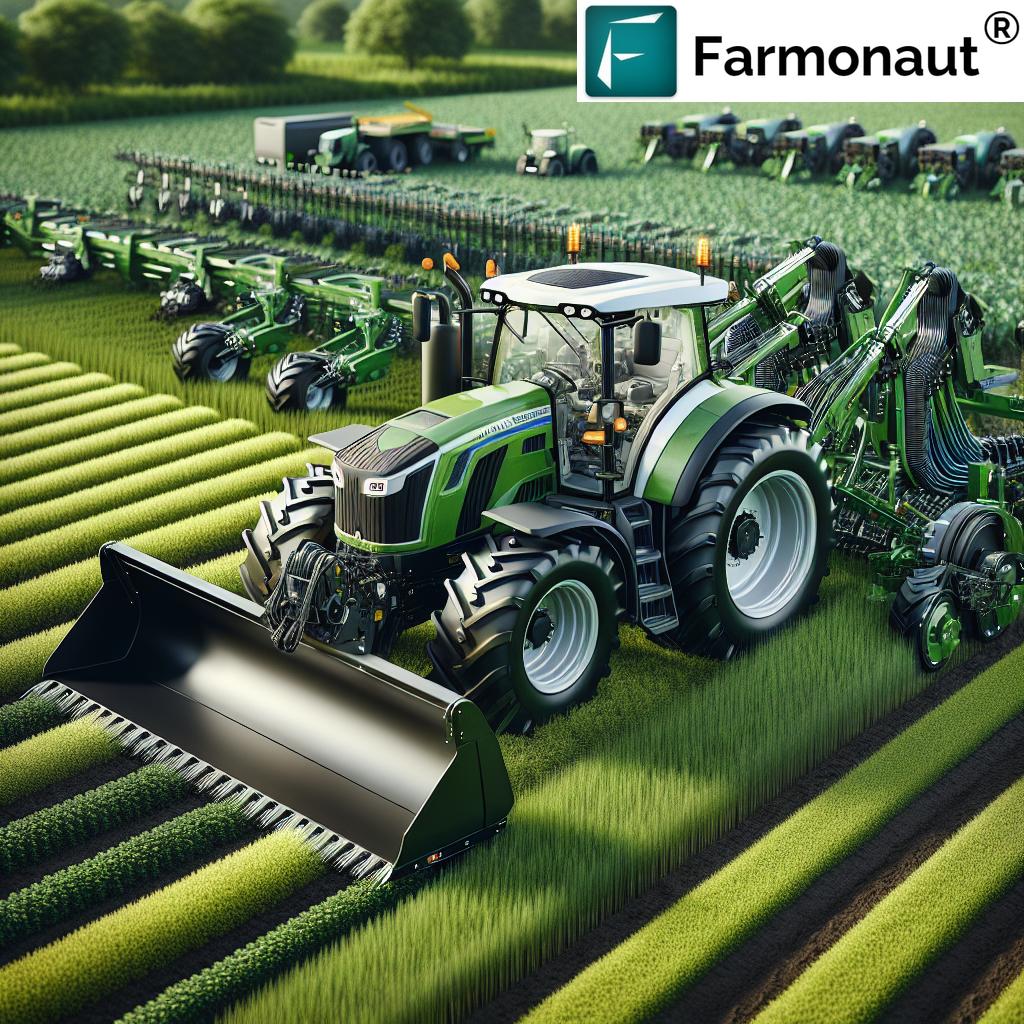Table of Contents
- Understanding Precision Irrigation Systems
- Trivia: Water Savings & Yield Potential
- Key Components of Precision Irrigation Systems
- Precision Irrigation in Action – Videos
- Traditional vs. Precision Irrigation Systems: Comparison Table
- 7 Powerful Benefits of Precision Irrigation Systems
- How Farmonaut Empowers Precision Irrigation & Crop Management
- Challenges in Implementing Precision Irrigation
- Ongoing Advancements & Future Prospects of Precision Irrigation
- Farmonaut Subscription Plans
- Frequently Asked Questions (FAQ)
Precision Irrigation Systems: 7 Powerful Benefits for Farms
In today’s world, precision irrigation systems stand out as a transformative, smart irrigation technology that is revolutionizing agriculture, forestry, and modern farming. With the precision application of water, integration of advanced sensors and AI-powered technology, and the use of data-driven insights, precision irrigation systems are optimizing water use, conserving vital resources, and dramatically improving crop yields. In this comprehensive article, we delve deeply into the essential components, technologies, benefits, challenges, and future prospects of precision irrigation systems—empowering us to farm sustainably and efficiently.
Understanding Precision Irrigation: A Transformative Approach
To truly reap the benefits of modern irrigation technology, we must first understand what precision irrigation involves. Unlike the static, uniform methods of the past, this approach uses data, smart devices, and environmental sensors to deliver water in precise amounts, at specific times, tailored to the exact needs of our crops and soil. The result is a targeted, highly efficient irrigation that minimizes waste, optimizes resources, improves crop health, and sustains the environment for future generations.
- Traditional methods apply water uniformly across the field, disregarding inherent variations in soil type, crop requirements, or microscale conditions.
- Modern precision irrigation tailors water delivery using real-time data from soil moisture sensors, weather stations, and remote imagery. Water reaches only the areas that need it, in the amounts required.
By deploying precision irrigation systems, we bring in advanced monitoring, IoT connectivity, and sustainable water management—enabling enhanced productivity and water conservation in farming that meets today’s environmental demands.
Key Components of Precision Irrigation Systems
Effective precision irrigation systems are built upon several essential components and cutting-edge technologies that work together to precisely manage water for optimal crop growth. Let’s explore these crucial building blocks:
1. Data Collection Tools: Sensors & Remote Sensing
-
Soil Moisture Sensors:
- These innovative devices measure the moisture levels within the soil, providing real-time data to guide irrigation schedules.
- With IoT integration, these sensors continually monitor, transmit, and optimize soil moisture levels across the field.
-
Weather Stations:
- Capture essential weather parameters: temperature, humidity, rainfall, evapotranspiration, and wind speed.
- Data supports accurate prediction of crop water requirements and optimal irrigation timing.
-
Remote Sensing (Drones & Satellites):
- Drones and satellites (such as those used by Farmonaut) deliver detailed imagery of crop health, water stress, and field variability.
- Satellite data helps identify areas of low moisture or disease risk, supporting data-driven irrigation decisions.
By integrating soil moisture sensors, weather monitoring, and advanced imagery, we gain superior insight for precise application of water resources and monitoring crop health.
2. Diverse Irrigation Systems: Drip, Subsurface, and VRI
-
Drip Irrigation Solutions:
- Delivers water directly to the root zone in a slow, steady manner, reducing evaporation and runoff.
-
Micro-sprinklers:
- Emit precise water amounts in targeted patterns—ideal for orchards, vineyards, and specialty crops.
-
Subsurface Irrigation:
- Distributes water beneath the soil, minimizing loss to evaporation and targeting the zones with greatest root uptake.
-
Variable Rate Irrigation (VRI):
- Uses field variability data to change water delivery for specific soil types, zones, or crops (especially powerful for large fields with diverse conditions).
These systems enable the customization of irrigation to meet the precise needs of our fields, providing a clear advantage over uniform traditional methods.
3. Integrated Technology & Advanced Software
-
IoT in Agriculture:
- Connects devices, sensors, and controllers for real-time remote monitoring and automated adjustments.
-
AI & Machine Learning:
- Analyzes vast agricultural datasets to predict water requirements, optimize irrigation schedules, and minimize manual intervention.
- AI-powered irrigation is revolutionizing resource use and crop productivity in modern farming.
-
Mobile Apps & GIS:
- Enable farmers and managers to monitor, schedule, and adjust irrigation systems from anywhere.
- GIS mapping tools help identify zones that require more or less irrigation, allowing even greater precision.
The synergy of artificial intelligence, machine learning, and IoT paves the way for advanced irrigation management and superior crop water management—core to future-ready farms.
Did you know? You can seamlessly integrate real-time weather, remote sensing, and advanced farm monitoring into your platform with Farmonaut’s satellite and weather API (developer docs here). Empower your agribusiness with next-gen data access!
Precision Irrigation in Action – Videos
Witness how satellite technology, real-time monitoring, and AI are integrated into precision irrigation, enabling smart crop management and resource optimization.
Comparison Table: Traditional vs. Precision Irrigation Systems
| Feature | Traditional Irrigation (Est.) | Precision Irrigation (Est.) | Benefit Highlight |
|---|---|---|---|
| Water Usage (liters/acre per cycle) | 5,000 | 2,500 | Up to 50% water savings; minimizes waste |
| Crop Yield Increase (%) | – | +10% | Improved yields from optimum moisture management |
| Resource Efficiency | Low | High | Optimizes usage of water, fertilizers, and energy |
| Labor Requirement (hours/acre) | 8 | 2 | Reduces manual intervention via automation |
| Implementation Cost (USD/acre) | $150 | $400 | Higher upfront; long-term cost savings via efficiency |
| Sustainability Impact | Moderate | High | Reduces runoff & environmental footprint |
| Technology Integration | No | Yes | Enabling smart decision making |
7 Powerful Benefits of Precision Irrigation Systems
The reasons to adopt precision irrigation systems are both practical and visionary—supporting our present needs and securing future agricultural sustainability. Let’s explore the seven most significant benefits:
-
Water Conservation in Farming
Traditional irrigation methods can result in significant water losses due to over-irrigation, surface runoff, and evaporation. In contrast, precision irrigation deploys advanced sensors and data-driven schedules to apply water exactly where and when it’s needed. With capabilities to reduce water usage by up to 50%, this benefit is critical for regions facing water scarcity and is essential for global agricultural sustainability.
-
Improving Crop Yields and Quality
Smart irrigation technology ensures crops receive optimal moisture at every developmental stage. According to recent studies, deploying precision irrigation systems—especially with satellite-based real-time crop management—can boost yields by 8-20%. Consistent moisture reduces stress, supports healthy root growth, and improves harvest uniformity and quality.
-
Cost Savings: Reducing Inputs & Labor
Lower water use translates directly to reduced water costs. Fewer pumping cycles mean lower energy bills. In addition, AI-powered irrigation minimizes disease risk caused by excess soil moisture, lowering expenses for crop protection and management. Automation with IoT controllers reduces the time and workforce needed for manual irrigation, creating exponential labor savings.
-
Environmental Sustainability: Reducing Runoff & Resource Waste
By precisely matching water application to crop and soil needs, precision irrigation drastically lowers runoff, leaching, and nutrient escape. This protects surrounding ecosystems, prevents water body contamination, and minimizes harmful fertilizer and pesticide movement—key features for farms seeking to boost their carbon footprint management. Learn more about Farmonaut’s carbon footprint tracking solutions.
-
Data-Driven Decision Making & Remote Monitoring
Integrated IoT devices, advanced satellite imagery, and AI-based advisory systems (such as Farmonaut’s Jeevn AI) empower us with live crop monitoring, predictive analytics, and smart recommendations. We can automate irrigation schedules and respond in real time to variable field conditions—thus maximizing operational efficiency.
-
Enhanced Traceability & Compliance
By documenting every irrigation event, resource input, and crop growth stage, we improve compliance with regulatory standards and enhance supply chain transparency. Blockchain-powered traceability systems (such as Farmonaut’s traceability suite) establish data integrity from farm to consumer, increasing trust, marketability, and environmental accountability.
-
Scalability & Adaptability For Diverse Farm Operations
Whether managing a smallholder plot or a vast agribusiness, modern precision irrigation systems can be scaled and customized to suit a wide range of crops, soil types, and climatic conditions. This agility is further boosted by affordable, satellite-driven solutions that allow even resource-limited farmers to benefit from smart irrigation technology.
How Farmonaut Empowers Precision Irrigation & Crop Management
At Farmonaut, our mission is to enable universally accessible, cost-effective, and data-driven precision irrigation and advanced farm management solutions. Here’s how we support smart, sustainable crop water management:
- Satellite-Based Crop Health Monitoring: Our platform captures field-scale NDVI, soil moisture, and canopy temperature data, helping users identify areas at risk of water stress or over-irrigation—empowering targeted intervention.
- AI-Powered Jeevn Advisory: Personalized, data-rich recommendations for irrigation schedules and crop protection, right from your smartphone via Android, iOS, or browser app. This brings AI-powered irrigation into every farmer’s hands.
- Blockchain for Traceability: Enhance transparency and ensure compliance by tracing each stage of crop irrigation and management—from field monitoring to market delivery.
- Resource & Fleet Management: Reduce operational costs, improve equipment monitoring, and optimize the use of irrigation infrastructure across large, distributed farms.
- Carbon Footprinting Tools: Track emissions and resource use for water, fertilizer, and energy to meet sustainability targets and regulatory requirements; details at Farmonaut Carbon Footprinting.
- Access to Financing: With satellite-verified crop insurance and loan support, ensure fair, data-backed assessment for lenders and insurers.
- API Integration: Agritech developers, governments, and big-data platforms can directly integrate our real-time weather and field-level data via our robust Farmonaut API.
Explore our large-scale farm management suite here, or see dedicated advisory for crop plantation and forestry applications here.
Challenges in Implementing Precision Irrigation
While the benefits are undeniable, the journey to precision irrigation isn’t without its challenges. We must recognize and address these for widespread adoption and long-term success:
-
Initial Investment Cost:
- The upfront expense of sensors, smart controllers, and system installation may seem significant—especially for smaller farms. However, numerous studies and successful trials confirm that water savings and yield gains rapidly offset these costs, making the return on investment favorable in the medium to long term.
-
Technical Expertise Requirement:
- Operating and maintaining advanced irrigation systems—especially those integrating AI, machine learning, and IoT—necessitates ongoing training and support. Education, accessible interfaces, and mobile-first platforms (like Farmonaut’s) can lower the learning curve and broaden access to smart technology.
-
Data Management & System Integration:
- The influx of field data from diverse sources (soil, weather, satellite, historic yields, etc.) requires robust, intuitive software for actionable insights. Seamless integration of farm management tools is essential; here, APIs and cloud-based solutions play a pivotal role.
-
Scalability & Adaptation:
- Precision irrigation systems must be adaptable—scaling up for vast plantations, or tailored for specific crops and conditions. Modular designs and pay-per-field SaaS models (as offered by Farmonaut) provide the necessary agility and affordability.
-
Regulatory & Policy Considerations:
- In some regions, water usage regulations and policies have not yet adapted to incentivize or accommodate precision irrigation practices. Ongoing advocacy, public education, and government support are needed to encourage smarter water management across the sector.
Ongoing Advancements & Future Prospects of Precision Irrigation
The landscape of precision irrigation is continually evolving due to breakthroughs in digital agriculture, sensor technology, and cloud-based analytics. Here’s what we can expect in the near future:
-
AI-Enhanced Predictive Scheduling:
- With sophisticated machine learning and AI algorithms, irrigation events will be predicted and scheduled based on real-time weather, satellite, and crop phenology data—maximizing water use efficiency.
-
IoT in Agriculture (Smart Devices, Wireless Networks):
- The proliferation of low-cost IoT devices and wireless networks means every aspect of field management is trackable, controllable, and loggable in real time, including energy use and pump status.
-
Higher-Resolution Satellite & Drone Imagery:
- Continued advancement in satellite imagery and drone-mounted multispectral cameras will provide more precise field analytics, enabling ultra-targeted water delivery and advanced stress detection.
-
Renewable Energy Integration:
- Solar-powered irrigation pumps and renewable energy distribution systems will reduce reliance on fossil fuels, curtailing carbon emissions while ensuring reliable irrigation even in remote locations.
-
Advanced Water Pump Technology:
- Smart pumps with dynamic speed and pressure control, linked to real-time sensor feedback, will tune water application to minute field changes for optimized efficiency.
Precision irrigation is at the core of a smarter, more resilient, and environmentally conscious agricultural future—enabling us to feed a growing population while conserving precious resources.
Farmonaut Subscription Plans: Making Precision Agriculture Accessible
Whether you’re an independent farmer, a large agribusiness, or a government agency, Farmonaut’s subscription model puts affordable, data-driven irrigation management in your hands. Choose from scalable packages for real-time crop health monitoring, resource management, advisory, and more.
Frequently Asked Questions (FAQ) on Precision Irrigation Systems
What is a precision irrigation system?
A precision irrigation system is an advanced agricultural solution that applies water in precise amounts, at the right times, and in the exact locations needed, based on real-time data from soil moisture sensors, weather stations, and satellite imagery. This approach optimizes resource use, enhances yield, and boosts sustainability by minimizing water waste and improving crop health.
How does smart irrigation technology help in improving crop yields?
Smart irrigation systems use IoT sensors, AI-powered analytics, and field imagery to monitor plant and soil conditions. By delivering water exactly when and where it’s needed, these technologies reduce plant stress, promote healthy growth, and can boost yields by up to 20% over traditional methods.
Are precision irrigation systems suitable for small farms?
Yes—precision irrigation is now more affordable and accessible due to cloud-based software, satellite monitoring, and pay-per-hectare subscription models (like Farmonaut’s). Even small farms can benefit from smart scheduling, early stress detection, and water savings.
What types of crops benefit most from precision irrigation?
All crops, from grains and vegetables to fruit orchards and row crops, can benefit from optimized water management. Fields with high variability in soil type or microclimate see especially significant gains.
How does Farmonaut support precision irrigation for diverse farm operations?
Farmonaut’s platform leverages satellite imagery, AI advisory (Jeevn), weather forecasts, carbon footprint tracking, and blockchain traceability to provide actionable insights and resource management for farms of all sizes—without requiring hefty hardware investment or specialized local infrastructure.
What is the return on investment (ROI) for implementing precision irrigation?
While initial costs are higher than traditional systems, savings in water, fertilizer, labor, and increased yield quickly produce positive ROI—often within 1-3 seasons, depending on farm conditions and crop type.
Can precision irrigation help with sustainability and regulatory requirements?
Absolutely. Precision irrigation systems minimize waste, reduce runoff, enable better reporting, and support initiatives such as carbon footprint reduction and supply chain traceability. These features make compliance with modern environmental standards much easier.
Conclusion: Cultivating the Future With Precision Irrigation
Precision irrigation systems signify a revolution in agriculture, forestry, and sustainable farming. By embracing a data-driven approach—powered by satellites, IoT, AI, and advanced software—we’re able to optimize water resources, conserve energy, improve yields, and promote environmental stewardship. While challenges remain, the rapid advancements in technology and smart management, as enabled by platforms like Farmonaut, ensure that precision irrigation becomes both practical and essential to farms of every size and in every geography. Join us in watering the seeds of a smarter tomorrow!


